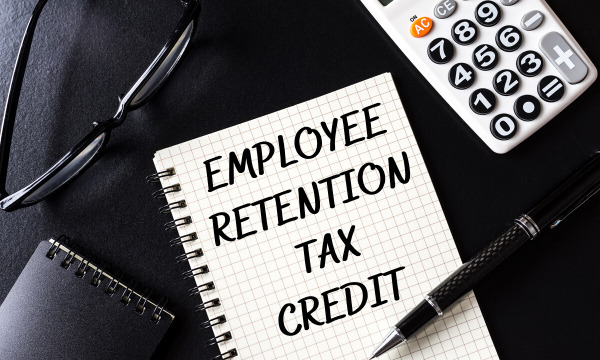Changes to the Employee Retention Tax Credit in the Infrastructure Investment and Jobs Act

President Joe Biden signed the Infrastructure Investment and Jobs Act (IIJA) into law on November 15, 2021. While this was bipartisan legislation, and most of the proposals for tax changes promulgated by the current Administration have been negotiated within the framework of the Build Back Better Act, a close read of the IIJA shows some changes of significant potential impact.
In particular, the IIJA makes changes as to the eligibility of various businesses for the Employee Retention Tax Credit (ERC) for the fourth quarter of 2021.
Changes to the Employee Retention Tax Credit Signed into Law Within the Infrastructure Investment and Jobs Act on November 15, 2021
The principal changes are to eligibility for the ERC; the relevant provisions concern both those businesses which are and are not Recovery Start-Up Businesses (RSBs). RSBs were identified and made eligible for the ERC as a part of the American Rescue Plan (ARP) signed into law by President Biden on March 11, 2021, which also extended the ERC through the fourth quarter of 2021.
Recovery Start-Up Businesses, as defined in the ARP, must:
- Have commenced activity after February 15, 2020,
- Have average annual gross receipts (on an aggregate basis) of $1 million or less for a three-tax-year period, which period would end with the tax year prior to the quarter for which the ERC was being applied for, and
- Fail to qualify for the ERC based upon the general eligibility requirements of 1) a quarterly decline of greater than 25% in revenues, or 2) a suspension or partial suspension of business operations due to governmental regulation or edict.
Note that all non-RSB businesses had to be prepared to demonstrate their eligibility quarterly via either 1) or 2) in the bullet above before they could claim the ERC.
Now, under the newly enacted IIJA:
- The ERC is terminated, retroactively, for all businesses except RSBs, as of September 30, 2021. Only RSBs will be eligible for the credit in the fourth quarter of 2021.
- RSBs are now neither subject to the rules of general eligibility non-RSB businesses had to demonstrate, nor are they barred from claiming the ERC if they do qualify under general eligibility rules.
The retroactive change could prove problematic for some employers, who may, by the date of the IIJA’s enactment, have already become liable under the new law for social security taxes. These taxes may not have been paid due to expectations that, the business being eligible under law governing the ERC at that time, the taxes need not be paid. Employers may now not only be liable for any unpaid social security taxes, but subject to penalties and interest as well.
The IIJA does not address this issue; it’s possible Congress, or the IRS on its own, will create relief for law-abiding employers subjected to undue financial burden through their reliance on the law as it existed at the time.
We will monitor this issue, which is concerning, to say the least, and report back.
I recommend strongly that you consult with us before making any tax or financial decisions. Getting the right decision implemented effectively is far better than getting something done immediately, which may in hindsight prove to have been a less than optimal choice. If you have any questions as to how the latest changes to the ERC could impact you and your business, we are here for you.
Please click here to let me know how I can help you.
Until next time –
Peace,
Eric
